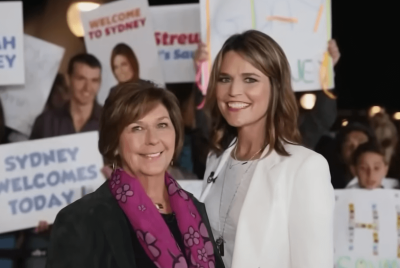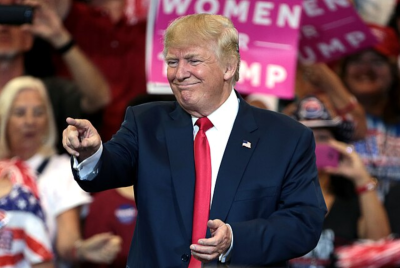Why Fans Are Wrong: Cynthia Erivo And Ariana Grande Are Not In A 'Semi‑Binary' Romance
Viral speculation framing their close bond as a 'semi-binary' relationship collapses under scrutiny of facts and their own statements.

It is time to put the record straight: the claim that Cynthia Erivo and Ariana Grande are in a 'semi-binary' romance is false, and the evidence shows it never had any basis beyond internet conjecture.
A wave of social-media posts in recent days has labelled the two actresses, co-stars in the blockbuster film Wicked: For Good, as 'semi-binary lovers.' The insinuation is that their close friendship, frequent physical affection, and shared public appearances mask a romantic or gender-fluid partnership. But a closer examination of the facts, their own words, public records, and the source of the claim, highlights that the story is a hoax.
The Origin Of The Rumour: Satire Masquerading As Fact
The 'semi-binary' romance narrative appears to have originated from a post on a Facebook page called The Lamented, a page explicitly dedicated to satire. The post claimed that Erivo allegedly coined the phrase 'non-demi-curious, semi-binary relationship' to describe her closeness with Grande, quoting her as saying: 'It means we are not actually a couple, but we are curious about what that could mean and everything.'
But there is no record, in interviews, podcasts, or any reputable publication, of either Erivo or Grande ever using that phrase. The satirical nature of the source was clear from the outset: the page's own bio reads 'where truth goes to die, and sarcasm reigns supreme.'
Investigations by respected entertainment outlets have found no credible evidence or statement to support the claim. One fact-check describes the report as a 'viral romance hoax,' noting its origins in satire rather than journalism or direct quotes.
Thus, the very foundation of the 'semi-binary' story is built on a fabrication, not on anything that Erivo or Grande has said.
What Erivo And Grande Have Actually Said: Warm Friendship, Not Romance
Both actors have addressed their public closeness and physical affection, but never in a romantic, sexual, or identity-labeling way. On the contrary, they have clarified many times that what they share is friendship and mutual support.
Grande recently told host Amy Poehler on her podcast that the frequent hand-holding, finger-touching, and embraces are 'my way of channeling support and energy through my hands.' She said these gestures are not reserved for Erivo; they are simply part of how she expresses solidarity or emotional connection.
The specific 'viral moment' when Grande gently held Erivo's finger during an interview was described by Grande as spontaneous and instinctive, 'supportive... tender... beautiful.'
For her part, Erivo has repeatedly spoken of their bond in terms of sisterhood and artistic collaboration. On The Tonight Show in December 2023, she said that Grande had become 'a family member for life now.'
In a recent interview, Erivo reflected that while their friendship may appear intense to outsiders, she rejects the idea that physical connection must always mean romance. She explained they sometimes 'just communicate through a squeeze of the hand' rather than words.
Crucially, neither actress has ever used the word 'semi-binary' to describe their relationship, or expressed any romantic or gender-identity-based attachment to each other in public.
Their Actual Personal Lives — And Why The 'Semi-Binary' Claim Collapses
Even a brief look at publicly available, credible sources shows that both women have existing relationships.
Grande is reported to be dating her co-star Ethan Slater, while Erivo is romantically linked to Lena Waithe.
Erivo identifies as queer and bisexual, a fact she disclosed in a 2022 interview — but her romantic partner is Waithe.
The 'semi-binary romance' narrative is doubly undermined: by the lack of any statement from the actresses who adopt that label, and by the transparent realities of their relationships.
Additionally, independent fact-checks point out a broader pattern: sensational or identity-based rumours often arise around celebrity friendships, especially in eras of social media virality and mis-/disinformation.
Why The Hoax Spread So Widely — And What It Says About Online Culture
The timing of the rumour, coinciding with the global press tour for Wicked: For Good, made it easy to spread. Erivo and Grande's public appearances often involved visible displays of closeness, including hand-holding and shared tattoos, which, for some, invite over-interpretation.
A key moment was when a fan confronted Grande at the Singapore premiere. Video footage showed Erivo stepping in to protect her co-star. That incident, and the emotional intensity surrounding it, reignited interest in their relationship, creating fuel for speculation.
Social media's appetite for romantic narratives, combined with a lack of media literacy around identity terms, created a perfect storm. 'Semi-binary,' 'non-demi-curious,' and other buzzwords were thrown together with screenshots, memes, and unverified quotes, making it easy for the hoax to catch fire.
But as media analysts note, such memes often lead to real harm: they distort public understanding of gender and sexuality, reduce complex friendships to salacious claims, and amplify harassment.
The evidence is unequivocal. The claim that Cynthia Erivo and Ariana Grande are in a 'semi-binary' romantic relationship is a fabrication rooted in satire, not in reality.
The actresses themselves described their bond as genuine friendship, affirming that their touching and closeness are expressions of emotional support and solidarity, not romance. Their publicly known relationships further refute the 'semi-binary lovers' narrative.
The 'semi-binary romance' story is not just untrue. It is an example of how easily misinformation spreads when social-media sensationalism, lack of context, and misapplied queer terminology converge.
Both as fans and as consumers of media, it is worth refusing to perpetuate it.
© Copyright IBTimes 2025. All rights reserved.
















